Abortion pills prosecution could have 'chilling effect'
- Published
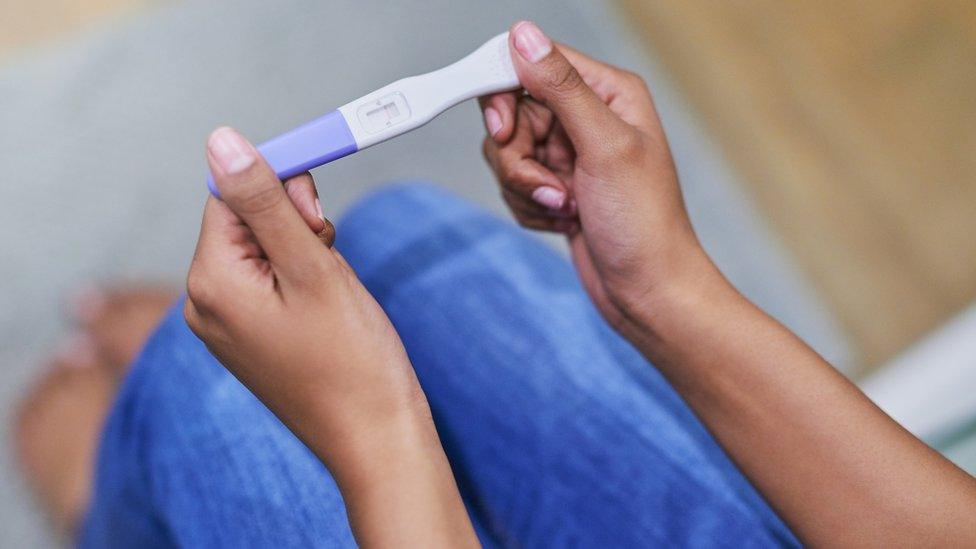
Women in Northern Ireland only have access to abortions when a woman's life is at risk, or there is a permanent or serious risk to her mental or physical health
The decision to prosecute a woman accused of buying abortion pills for her 15-year-old daughter could have a "chilling effect" on woman and girls in a similar situation, a court has heard.
A lawyer representing the Northern Irish woman made the comments at the High Court in Belfast.
The woman is challenging the decision to prosecute her.
If the prosecution proceeds, she faces a criminal trial with the possibility of up to five years in prison.
She is charged with procuring and supplying poison in July 2013 with the intent to procure a miscarriage.
This is the first time a prosecution relating to Northern Ireland's abortion law has been challenged.
Reporting restrictions on the case mean the mother and daughter cannot be identified.
During Tuesday's judicial review hearing, a lawyer for the woman said the daughter had been in an abusive relationship and, when she discovered she was pregnant, sought an abortion in the summer of 2013.
Pills were purchased online and an abortion took place over several days.
The law on abortion in Northern Ireland explained
The court heard that after seeing her GP, the woman's daughter was referred to counselling.
The counsellor referred the matter to Social Services who then contacted the Police Service of Northern Ireland (PSNI).
It emerged in court that the PSNI removed the child from class at school without parental consent and that they accessed the child's medical records.
One of the three judges hearing the case stated that buying the pills online would also have been illegal in England.
Legal argument contended that compelling the girl to continue with her pregnancy would have breached rights to protection from inhuman and degrading treatment.
It was further contended that prosecuting the mother for enabling her to access medication to obtain an abortion also violated those entitlements and rights to privacy and family life under human rights law.
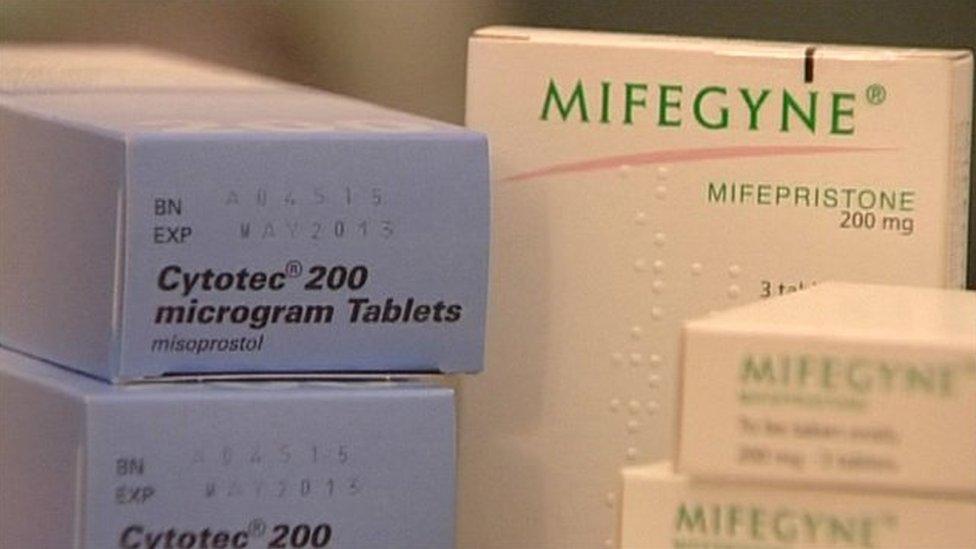
Misoprostol is sold under the brand name Cytotec among others
The case was heard on Tuesday after being adjourned in September.
The hearing is expected to last more than two days.
Lord Chief Justice Sir Declan Morgan refused to proceed with the case until the PPS considered the UK Supreme Court judgement in its submissions.
The mother faces two charges of unlawfully procuring and supplying the abortion drugs mifepristone and misoprostol with intent to procure a miscarriage, contrary to the 1861 Offences Against the Persons Act.
Her lawyers have argued that conception followed underage sex and compelling the girl to continue with her pregnancy would have amounted to inhuman treatment under European law.

How does the law in NI differ from the rest of the UK?
Taking drugs to bring on a miscarriage without doctors' consent is an offence anywhere in the UK under the 1861 act.
But in England, Scotland and Wales, an abortion can be legally carried out up to the 24-week limit and can be legal beyond that limit in cases where the mother's health is threatened or if there is a substantial risk the baby will have serious disabilities.
Women in Northern Ireland only have access to abortions when a woman's life is at risk, or there is a permanent or serious risk to her mental or physical health.
Women in England will be allowed to take an early abortion pill at home, under a government plan due to take effect by the end of the year, bringing the law into line with Scotland and Wales.

In June, the UK Supreme Court narrowly ruled that current abortion legislation in Northern Ireland was "incompatible" with the European Convention on Human Rights.
Most recently, Sarah Ewart was granted leave to judicially review the current prohibition on abortions in cases of fatal foetal abnormalities.
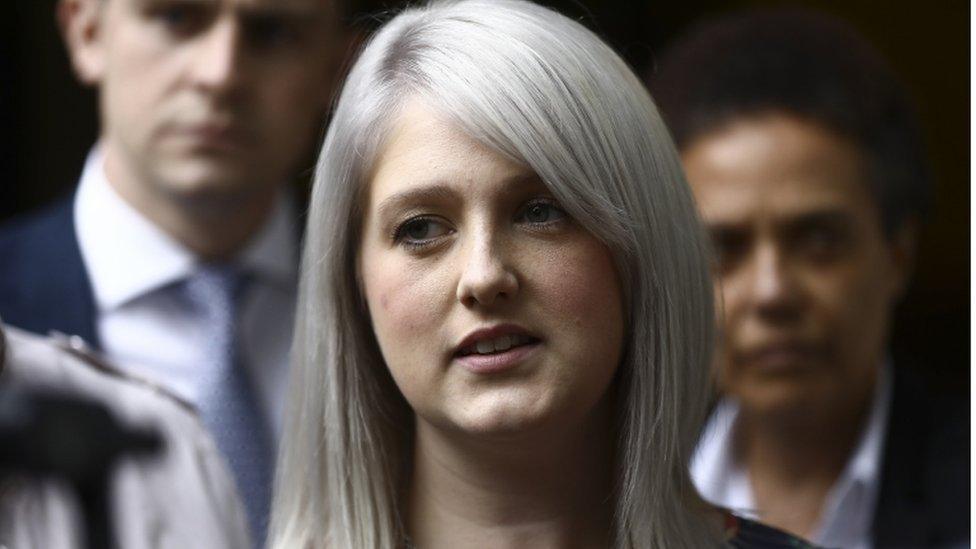
Sarah Ewart is challenging Northern Ireland's prohibition on abortions in cases of fatal foetal abnormalities
The substantive case, which is due to be heard in the coming months, will test whether the regime is incompatible with human rights law.
Five years ago, Ms Ewart travelled from Northern Ireland for a termination in England after a 20-week scan revealed her baby had anencephaly, which meant the brain and skull had not developed and the baby would either be still-born or die shortly after birth.
There is no movement on the issue in Northern Ireland as abortion law remains a devolved matter and the Stormont Executive collapsed January 2017.
- Published20 September 2018
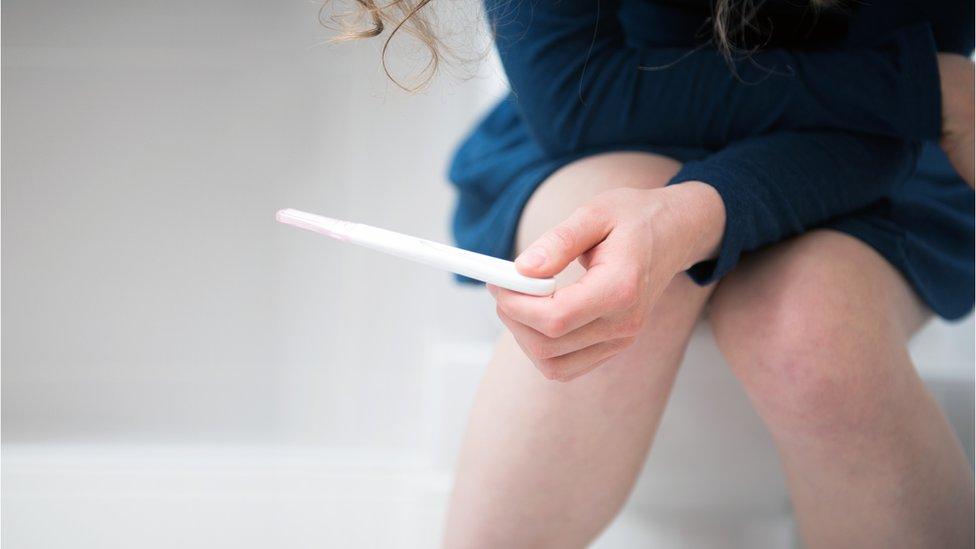
- Published27 October 2016

- Published7 June 2018
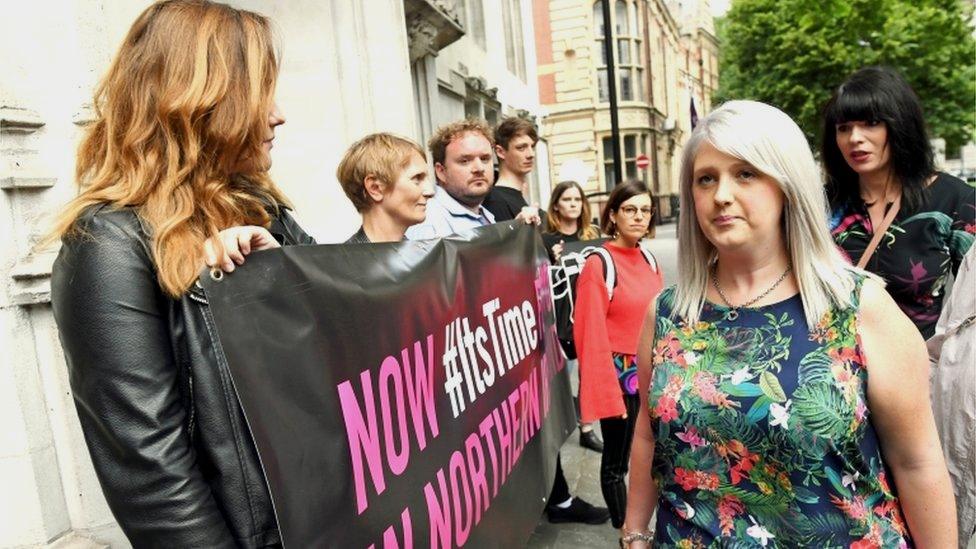
- Published25 August 2018
